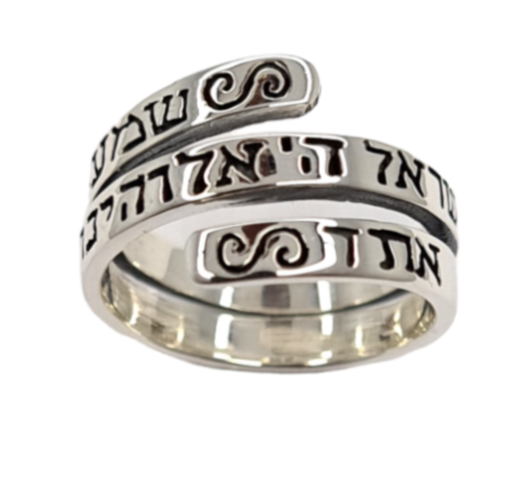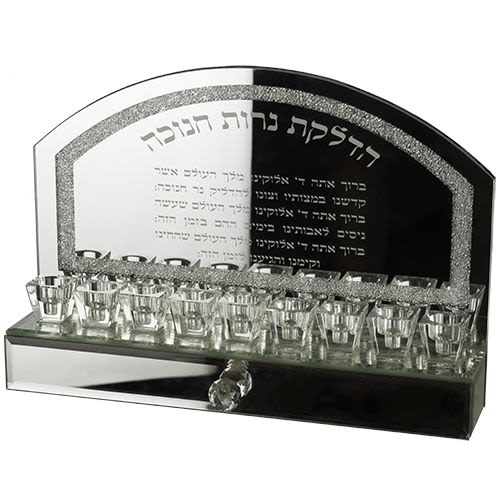
Gambling
…the best and only way to acquire one's needs is prayer, appealing to our merciful Father in Heaven for His Divine blessing and compassion.

Gambling is a terrible sickness, even more addictive than alcohol, tobacco, or drugs. It literally buries people, and reduces them to subhuman level. Gambling and emuna just don’t mix.
The lust for money is the root cause of the gambling affliction, which not only drives a person insane, but makes him or her forget HaShem, truth, and emuna in HaShem’s Divine Providence, Heaven forbid.
Gambling looks like a road to easy money; but, the glitter of "easy street" is none other than a deceptive avenue to a living death of bitterness, broken families, debt, loan sharks, and utter despair.
Gambling makes a person’s head spin. The Yetzer HaRa (evil inclination) has a standard template for trapping people in this death trap: He shows a person someone that made a windfall in the casino; that person now thinks that he’s the next in line for the pot of gold. With a fantasy of fantastic wealth that tickles his imagination, the gambler wastes all his money chasing the rainbow of riches. A gambler will sell his business, home, and car to keep the dice rolling; he forgets about his wife and his children; if he could, he’d sell them too.
Profit that’s Nothing but a Loss
According to Jewish Law, money won in gambling is considered an illegal acquisition; the gambler is deemed an unreliable individual whose testimony is unacceptable in a religious court (see Shulchan Oruch, Choshen Mishpat 34:16). Money won in gambling has no blessing; the gambler won’t see any benefit from such gains, for gambling money is spiritually putrid.
The Gambler always Loses
On Rosh HaShanna, a Heavenly decree determines how much each person will profit or lose in the coming year. For example, let’s suppose that John Doe is destined to earn $150,000 this year, but he’ll also lose $30,000.
If John Doe does all the tricks in the world, and hires an army of statisticians and computer analysts to advise him how to bet on the dice, he still won’t make any more than his annual allotment from Heaven. But, if he perseveres in prayer, gives liberal amounts to charity, and goes out of his way to help those in need and to educate his children in Torah, he can receive more that the original allotment.
But – pay close attention – by gambling, he is liable to lose more than his predetermined loss, even his entire assets. John Doe the gambler not only endangers his house, his possessions, and all his money, but is likely to fall into a deep pit of debt that enslaves him for the rest of his life.
Either way, the gambler is a loser; his winnings are money with a curse, and he won’t earn a cent more than what’s destined for him without gambling. Yet, his losses are liable to be limitless. Is it worth it?
Cruel as a Crow
Crows are known to be cruel; they worry about themselves, and they don’t feed their young. HaShem’s amazing care for crow nestlings is one of the creation’s miraculous phenomena (see Iyov 38:41, Tehillim 147:9, Midrash Tanchuma, Ekev, b), otherwise they’d die of starvation.
HaShem doesn’t give a person money for his own exclusive use; a person’s allotment includes the stipend for his wife’s and children’s needs. As such, most of a person’s money is earmarked for the sustenance of his dependants; if he were single, he’d probably earn a lot less.
The gambler has no right to gamble the food from his children’s mouths or the shirt off his wife’s back. When he does, he’s worse than a crow; a crow doesn’t provide, but doesn’t take food out its nestlings’ mouths either.
On a spiritual level, the gambler will be punished for the pain and anguish he causes to his loved ones. Again, he’s a double loser – in this world and in the next.
The Gambler Thrives on the Suffering of Others
Gambling is more than problematic on the level of morality. In most cases, one person’s winnings are another person’s losses. There can be no blessing to funds earned from the sorrow of another human. Even if a gambler wins, how can he enjoy monies that were destined to be the food and clothes of the loser’s family?
A person that believes in the Almighty avoids even the slightest contact with gambling.
The lust for gambling is rooted in denial of HaShem; therefore, a gambler that desires to kick the habit must pray to HaShem for emuna. He must beg HaShem to help him trust that all his livelihood and all his needs come from HaShem by way of magnificent Divine Providence. Gambling, like other morally-questionable ways of attaining money, rusts the crystal-clear shining pipes of abundance. HaShem doesn’t need the gambler’s help in providing his preordained annual income.
Lottery Tickets
According to the letter of Jewish Law, lottery winnings are permissible, because they’re not the losses of another person. Nevertheless, purchasing lottery tickets isn’t 100% congruent with the spirit of emuna.
If a person does desire to purchase a lottery ticket, he or she should purchase a single ticket only; if HaShem wants them to win the lottery prize, He’ll arrange that their ticket bears the winning number.
One who purchases multiple lottery tickets shows that he or she trusts statistics or enhanced chances, and not in HaShem. He or she also wastes money that was intended for their basic needs.
Lottery tickets are therefore a test of faith: Folks that believe in HaShem’s Divine Providence won’t purchase more than a single ticket. If they win, congratulations! If they lose, they know that HaShem didn’t want them to win, and that the money would have been detrimental to them. Accepting the outcome of a losing lottery ticket without disappointment earns a mark of "excellent" in emuna.
Without emuna, a person buys multiple tickets to increase his or her chances. By putting their faith in probability or luck, he or she not only wastes money but fails the test of faith.
A Difficult Test
A sudden windfall, such as an inheritance or a winning lottery ticket, is a serious and difficult test of faith. Experience shows that many people that acquired sudden wealth ultimately suffered severe emotional and spiritual maladies. Why?
Most people lack the emotional and spiritual gear that’s required to successfully deal with more than they’re accustomed to. As a result, they become disoriented and arrogant; suddenly, the nouveau-riche husband no longer wants his wife, and vice versa. They entertain fantasies of glamour and grandeur, as if their money entitles them to more. Oftentimes, they use their money imprudently, squander it, or make senseless investments. They fall prey to con-artists, greedy relatives, newly-found "friends," or white-collar swindlers such as unethical lawyers, accountants, or investment brokers. Frequently, their new riches are one continuous migraine headache.
Emuna is a proper and capable spiritual vessel for handling wealth. The wealthy individual with emuna knows that money belongs to HaShem, and is none other that a temporary deposit in his or her hands in order to implement HaShem’s commandments. As such, he or she doesn’t slip into arrogance; they know that HaShem can take their money away at any instant, so why boast about it? They give a minimum of 10% to charity; the wealthy on the highest level of emuna give 20% of their earnings to charity. They are forever grateful to HaShem and display their gratitude by supporting Torah institutions and worthwhile charitable endeavors. With emuna, a person passes the test of wealth with flying colors.
The opposite is true where there’s no emuna. The wealthy, especially the newly wealthy, are consumed by the fear of losing their money. They become arrogant and disoriented. Their dream of money turns into a nightmare, for they have no one to trust. They fail the test of emuna.
Happiness or Wealth
The desire for quick money shows a lack of emuna. Those who believe in HaShem know that the quality of their lives doesn’t depend on the amount of money they have, but on they extent they acquire emuna and succeed in performing HaShem’s Will.
Prayer, charity, and teshuva are the only solutions to financial difficulties. If HaShem gives a person the tribulations of financial straits, then money won’t solve that person’s problems; he or she will only get different and possibly worse set of tribulations.
Teshuva is the only way to end tribulations, since there are no tribulations without transgression. As long as a person refrains from doing teshuva – even with all the money in the world – he or she will suffer because of their outstanding and uncorrected transgressions. But, with teshuva and a clean spiritual slate, people can live a sweet and pleasant life even if they don’t have a cent in their pockets.
Rebbe Aaron of Kiblitsh was direly poor, yet phenomenally happy all the time. Once, a wealthy friend told him that he envies him. The rich man said that he’s always buying gifts for his wife and children, yet they’re never satisfied and they’re constantly bickering. But, since Rebbe Aaron’s smiling disposition is always so pleasant, his family is happy despite their material deficiency.
Consequently, a person should be satisfied with his or her lot in life and not strive for riches. Our Sages said that the more a person has, the more he or she worries. In any event, the best and only way to acquire one’s needs is prayer, appealing to our merciful Father in Heaven for His Divine blessing and compassion.
To be continued…













Tell us what you think!
Thank you for your comment!
It will be published after approval by the Editor.